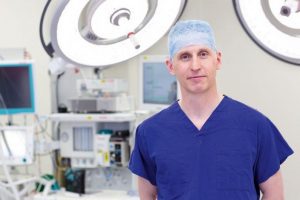Professor Andrew Hayes
Institute of Cancer Research
Awarded: £24,905
Status: Complete
The challenge
Isolated limb perfusion (ILP) is a surgical technique that may be used when patients have a large tumours or had previous surgery. ILP delivers high-dose anti-cancer drugs to an affected limb only whilst avoiding life-threatening side effects throughout the body.
The immune system plays a major role in the development of cancer, with many tumours able to switch off the immune system from attacking tumour cells. Research has found that you can add cancer-killing viruses (known as oncolytic viruses, or OV) to ILP. However, although this treatment can prevent a tumour from growing, it cannot prevent it from spreading through the body.
How will this project tackle this challenge?
This project is looking at ways to combine this technique with drugs which activate the body’s immune system, with the aim of developing a treatment that can prevent both growth and spread of these soft tissue sarcomas. The team will explore whether standard ILP and OV-ILP (with cancer bursting viruses) alters the number and type of immune cells within a tumour. It will also look at whether combining OV-ILP with other drugs that activate the immune system is an effective strategy to treat or prevent tumour spread in patients with extremity soft tissue sarcoma.
What this means for people affected by sarcoma
This project offers a more effective treatment with limb sarcomas. Delivering high dose drugs only to the area which needs it, as well as reducing the growth and spread of the sarcoma should improve the care for patients affected.
The team received more funding from Sarcoma UK to pursue this work in a further project.










